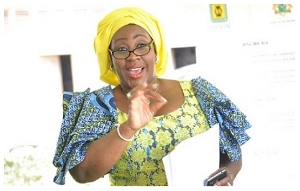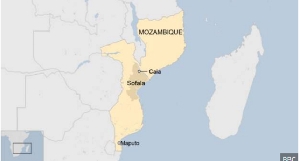- Home - Entertainment
- Lifestyle News
- Entertainment Videos | TV
- Year In Review
- Music News
- Entertainers
- Entertainment Archive
- Entertainment Photos
- Jokes
- Entertainment Headlines
- Ameyaw Debrah
- Brown GH
- Celebrities Buzz
- GH Base
- Ghana Celebrities
- Gh Gossip
- GH Page
- GH Splash
- Hot Gossip GH
- YEN

Regional News of Saturday, 16 January 2021
Source: Abdul Karim Naatogmah, Contributor
Ghana schools reopening: Run shift system for some basic schools - UDS Senior Lecturer
Staying at home for almost one year necessitated by COVID 19, students of Primary, Junior and Senior High schools are expected to resume school work on Monday, January 18, 2020.
President Nana Addo Dankwa Akufo-Addo in his 21st address on the coronavirus pandemic announced the much-awaited reopening of schools at all levels.
The set dates are that all students from Kindergarten to Junior High Schools will return to school on January 15 while SHS students in Form Two and Three will return to school on January 18.'
It is against this backdrop, Dean of the Faculty of Education, University for Development Studies (UDS), Dr Ibrahim Mohammed Gunu has applauded government's decision and encouraging the Ghana Education Service (GES) to run a shift system for some public basic schools.
This, according to the academic is the surest means of downsizing the overcrowded classrooms. He further called for expansion of school infrastructure for future enrollment.
He also recommended that government should establish an Interagency Referral Center under the Department of Social Welfare for students who are near exclusion from school as a result of the impact of schools’ closure.
“This calls for collaboration among the schools, the Department of Social Welfare, the Metropolitan/Municipal/District assemblies and other significant stakeholders. Establishing student referral units under the department of social welfare will not only ensure that students who are at risk of being excluded from the school system are retained in schools but will also provide an effective mechanism for monitoring the progress at which such students cope with the pandemic –related challenges.
The categories of students involved in this case include those who have given up their studies as a result of pregnancies, marriages (including forced marriage) or who have started work (including child labour) and may not be willing to return to school”.
“For instance, students who may find themselves in the condition of teenage pregnancy and other issues may refuse to go back to their schools as a result of stigmatization. Arrangements should be made by the center to ensure the transfer of these students to an available school of their choice. This transfer should be done in collaboration with parents and the schools where possible,” Dr. Gunu expatiated.
The Dean further emphasized the need for adequate remedial measures saying, “Some of the students might have lost the habit or the skills of learning if remedial measures are not instituted it could lead to poor mental health and emotional instability.”
He called for strict adherence to safety protocols. “The GES in collaboration with relevant stakeholders should monitor the continuous observance of health protocols in schools and schools that do not follow these protocols should be sanctioned.”
He has also commended GES for instituting the back-to-school campaign but cautioned that his years of “practising social marketing strategies in education matters has revealed that Public information or public campaigns at this critical time cannot change any deep-rooted attitudes. Action Change which involves arranging factors that make it easy for target persons to carry out the action is the way forward. Hence, the need for the creation of the multiagency collaboration referral centre to lead the campaign in the communities and facilitate school re-entry for these venerable groups”.
It is recalled that on September 18, 2020, Dr Gunu underscored the need for government to reopen basic schools and provided an appropriate mechanism for safe school reopening and continuation process.
He explained in his earlier submission that, "We need to know that children cannot wait for that long. Children learn less, and lose the habit of learning.”
"In some parts of Ghana, if schools are not reopened, students may give up their studies and start work or get married. Children are more likely going to suffer abuse, malnutrition and poor mental health, “he bemoaned.











